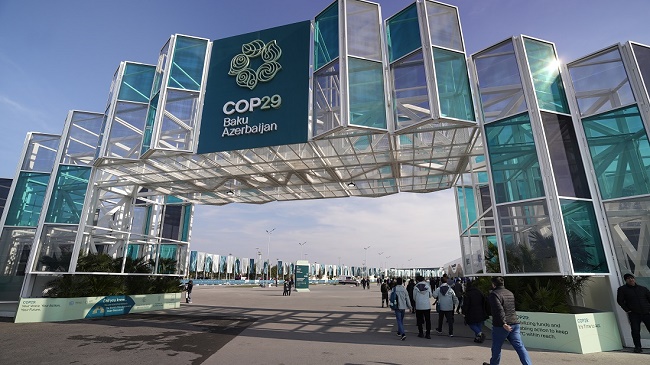In what observers have described as a disappointing and dangerous outcome at the UN’s climate change conference COP29, governments have agreed to an “alarming” decision to pass through final documents that adopt crucial final aspects of Article 6 of the Paris Agreement.

The decision has reportedly sparked outrage among civil society, Indigenous Peoples, and climate justice groups who recognise carbon markets for what they are – a false solution that detracts from the systemic changes needed to address the root causes of the climate crisis.
According to observers, the decision to proceed with Article 6 carbon markets seems to ignore mounting evidence that they do not deliver real emissions reductions and often lead to human rights abuses, land grabs, and violations of the rights of Indigenous Peoples
“They offer a distraction from genuine solutions like just transitions, restoration of natural ecosystems, and support for community-led initiatives that address the climate crisis at its roots. They offer permits to pollute for the biggest polluting industries.
“Article 6 is not a solution to the climate crisis. It opens the door to a new global carbon market linked to Nationally Determined Contributions and will guarantee fossil fuel extraction and false solutions for decades to come.
“Geoengineering, like other false solutions, does not address the root causes of the climate crisis and relies on techno-fixes that are risky, speculative and likely to introduce grave new environmental and social threats, which will only worsen the climate chaos,” submitted the Hands Off Mother Earth! (HOME) Alliance, a network that campaigns against the growing threat of large-scale technological manipulation of the climate and biodiversity.
Just two weeks ago, the Convention on Biological Diversity (CBD) COP16 made a decision to reinforce the precautionary approach to geoengineering and reaffirmed the call for a global moratorium on geoengineering.
“The decisions made at UNFCCC COP29 could undermine precaution on geoengineering called for by the biodiversity convention, which is a sister convention and this, and there should be coherence between both of them.”
Tamra Gilbertson, Indigenous Environmental Network, said: “The carbon markets in Article 6 of the Paris Agreement were pushed through COP29 in a take it or leave it outcome. The lack of transparency and diplomacy signals a new dangerous era in climate change negotiations with the UNFCCC acting on behalf of the petrol states with impunity. Our next steps must ensure that geoengineering like carbon capture and storage and other false solutions that violate the rights of Indigenous Peoples are stopped.”
Linda Schneider, Heinrich Böll Foundation, said: “It is very worrying that under the agreement reached here on the Article 6.4 carbon market mechanism, carbon markets have been expanded to include carbon removals, such as dangerous geoengineering proposals for removing carbon dioxide from the atmosphere.
“These as-yet-unproven technologies come with large-scale risks for people and ecosystems and are yet another escape hatch for the fossil fuel industry. The carbon trading schemes agreed here might facilitate the commercial roll-out of high-risk geoengineering technologies for the purpose of offsetting. Governments must work to exclude geoengineering approaches at the next COP as they will only add to climate chaos and make already flawed carbon markets even more problematic.”
Kirtana Chandrasekaran, Friends of the Earth International, said: “The supposed ‘COP of climate finance’ has turned into the ‘COP of false solutions’. The UN has given its stamp of approval to fraudulent and failed carbon markets. We have seen the impacts of these schemes: land grabs, Indigenous Peoples’ and human rights violations. The now operationalised UN global carbon market may well be worse than existing voluntary ones and will continue to provide a get out of jail free card to Big Polluters whilst devastating communities and ecosystems.”
Coraina de la Plaza, Global Coordinator, Hands Off Mother Earth Alliance, said: “COP29 got off to a very bad start by perpetuating the colonial model and human rights violations, and by opening the floodgates to geoengineering through the adoption of Article 6.4 on carbon markets. Unfortunately, it has ended as badly as it began – the lack of ambition and finance by developed countries and the promotion of false solutions to address climate change will be mostly suffered by those who have contributed the least to this crisis.”
Alejandro Jaimes, Alliance of Non-Governmental Radical Youth (ANGRY), said: “Complex negotiation language is not the answer to fight the climate crisis. Carbon market mechanisms currently being adopted at COP29 poses an immense threat to grassroots movements whose resistance does not deserve even more negligence from governments and more greed from companies. Today’s results do not represent people’s demands and will never do it if grassroots participation is not being prioritised. We, as youth, are saying no to the commodification of nature and life.”
